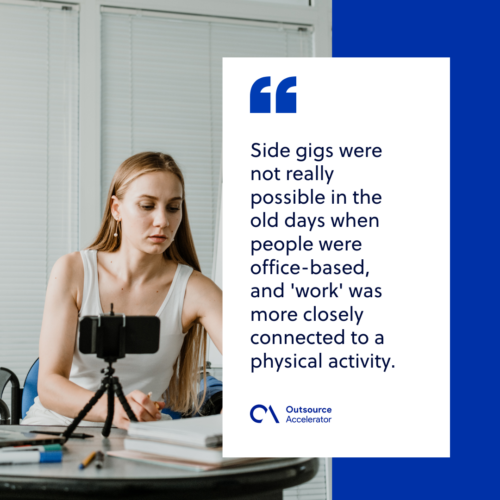Is moonlighting acceptable?
As the world moves increasingly online, juggling a couple of side gigs while maintaining your ‘day job’ is much easier.
But is moonlighting acceptable, ethical, or legit?
It’s becoming increasingly cool to have a side hustle – or even a startup you’re working on. This shift towards ‘on-the-side entrepreneurship’ has employers wondering if they are getting the full attention of their full-time staff.
Side gigs were not really possible in the old days when people were office-based, and ‘work’ was more closely connected to a physical activity.
However, with the recent shift to work-from-home, digital interfaces, and online economies, its kinda hard to track what people are doing.
Now, it seems that you’re unambitious if you don’t have a little something on the side.

There is a story of a ‘full-time’ Facebook employee also working ‘full-time’ at a startup. He reported his combined income was $420,000/yr – and to rub salt further – he was working only 22 hours a week, total.
There is an argument that people should not be measured by their hours, facetime, or input but instead by the value they bring to their role and the output produced.
While you can generally tell if an employee is a good contributor – or not – it is usually very hard to know precisely what level of energy they put into their job and how many hours of productive work are being done.
If someone can move mountains in just 20 hours per week, then maybe the boss should be happy with that contribution? But imagine if that same person was moving mountains for 40 hours each week instead of just 20 hours.
There are now tools in the market enabling productivity monitoring – like TimeDoctor. But there’s an uneasy tension around these tools. Some would argue that it monitors and enhances productivity – others say that it’s spyware, unfair and intrusive.

 Independent
Independent





















